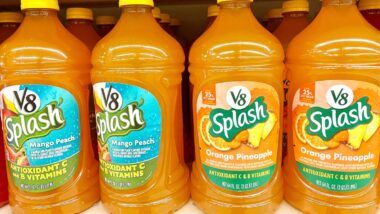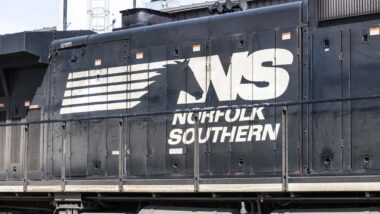Top Class Actions’s website and social media posts use affiliate links. If you make a purchase using such links, we may receive a commission, but it will not result in any additional charges to you. Please review our Affiliate Link Disclosure for more information.

Honda is recalling 628,124 vehicles in the United States over fears a faulty fuel pump could cause an engine to stall, increasing the risk of crashes.
This week, Honda Motor Co announced that the recall would include some of its most popular vehicles from 2018-2020 model years, including the CR-V small SUV and various Acura and Honda vehicles. The worldwide recall reportedly covers some 700,000 or more vehicles.
Honda said affected vehicles may be equipped with a fuel pump module manufactured with low density impellers – the rotating part of the pump – which are at high risk of deformation and malfunction.
“Fuel pump inoperability could prevent an engine from starting or stall an engine while driving, increasing the risk of a crash,” the recall notice says.
Honda says it has received no reports of injuries or crashes related to this issue, but has had 583 warranty claims and 166 field reports.
The recall covers the 2018 and 2019 CR-V, 2019 and 2020 Accord, 2019 Civic Coupe, Sedan, and Type R, 2019 and 2020 Civic Hatchback, 2019 Fit, 2019 HR-V, 2019 and 2020 Insight and the 2019 Odyssey, Passport, Pilot, and Ridgeline. Acura models include the 2019 ILX and the 2019 and 2020 MDX, RDX, and TLX.
The recall also includes vehicles outside of the U.S., bringing the total number of affected vehicles to 761,000, reports Reuters.
The recall is not the first the company has had to undertake because of the fuel pump issue. In June 2020, Honda recalled 135,995 vehicles over the same impellers, after discovering the issue in May.
The company says it did further analysis into impeller density to improve the accuracy of the criteria, and the updated criteria were applied to all fuel pump manufacturing lots built during the suspect period.
Now, Honda has expanded the recall after determining the problem was more widespread than initially thought.
“Over time, if an impeller deforms to a point that creates sufficient interference with the fuel pump body, the fuel pump becomes inoperative, which may cause illumination of the Malfunction Indicator Lamp in the instrument panel,” recall correspondence with regulators states.
Honda says it will notify owners starting May 18, and dealers will replace the fuel pump assembly free of charge.
Honda is not the only car manufacturer that has had to recall vehicles over fuel pump issues. In October 2020, Toyota had to expand a recall of some of its Lexus and Toyota vehicles that risked stalling due to a faulty fuel pump.
Has your car ever unexpectedly stalled on you? Let us know in the comments section!
Read About More Class Action Lawsuits & Class Action Settlements:















36 thoughts onHonda Recalls More Than 628K Vehicles Over Faulty Fuel Pump
My Honda Accord 2019 has had several issues. After 13K miles I had to have a brake job. One of the dealers tried to make me pay for it. I refused and sent a letter to corporate. With these major issues, Honda would rather someone dies first before admitting or taking care of these major mechanical issues.
I called Honda Accord Corporate. They give you the run around; They have the fuel pump issue, and also wheel bearing issues. This beautiful car is a lemon. Its embarrassing to have a brand new car (even when I first purchased it) making such horrible sounds and having to get a brake job prematurely. On top of that fight to get the work done for free. Now my car sounds horrible. Which my mechanic where I work says it sounds like a wheel bearing issue. Not the first I have heard of this. There are thousands of complaints about this issue as well. So we have bad brakes, wheel bearing issues, and fuel pump issues. On the new beautiful Accord It’s beautiful on the outside but ugly on the inside.
I have 16,000 miles on my 2019 Honda Odyssey and I have constantly had an issue, when I push on the brake my van does not accelerate, it’s very scary when I’m merging into traffic. I’ve been to Honda 3 times and they claim they cannot duplicate the problem. How come I didn’t get notified that I’m eligible for this fix? This article indicates my year and model, Honda Odyssey 2019. Can anyone please help?
THIS IS ALSO A PROBLEM WITH THE 2016 HONDA CIVIC!! They should not be allowed to limit the models covered by these lawsuits. We paid a premium for these more recent models, but they lacked the quality of the older Hondas. They should address these concerns, as they affect all product lines. My 2016 Honda Civic has already drained six batteries!!!
waiting months for a recall to be fixed fearing as i drive, multiple electrical issues battery died in less than a weak of purchase tire light comes on for no reason it’s a lemon and less than 5k miles and new
Please add me as well. I have a 2018 CR-V.